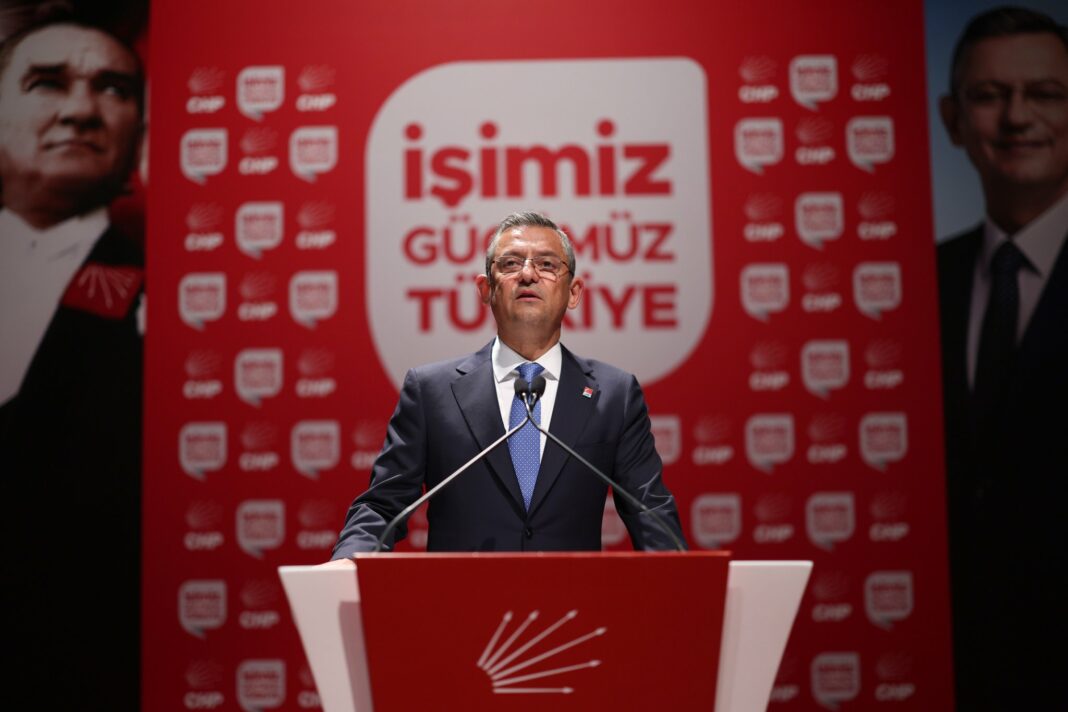Eleven years after the Gezi Park protests, Turkey’s largest anti-government demonstrations that also posed the biggest challenge to the rule of Recep Tayyip Erdoğan, the country’s main opposition leader has accused followers of the Gülen movement of provoking the protests to raise tensions in the country.
Republican People’s Party (CHP) leader Özgür Özel’s remarks came during a recent interview on the pro-opposition Halk TV.
In the interview Özel talked about the Gezi Park protests, which began over an urban development plan in central İstanbul in the summer of 2013 and spread to other cities in Turkey. The protests were violently suppressed by the government of then-prime minister and current president Erdoğan.
Özel said the Gezi Park protests began peacefully but that police under the command of “pro-Fetö” officials raised the tension by setting the protestors’ tents in Gezi Park on fire.
Fetö is a term coined by the Turkish government to refer to the Gülen movement, inspired by the views of Islamic scholar Fethullah Gülen, as a terrorist organization.
The movement is accused by Erdoğan and his government of masterminding a failed coup in July 2016 and of terrorism. The Gülen movement strongly denies both accusations.
Özel’s accusations against Gülen movement followers come despite the fact that Erdoğan admitted at the time to having ordered the police to suppress the protests, which led to the death of 11 protestors due to the use of disproportionate force.
The CHP has been campaigning for the release of five people including prominent businessman and civil society leader Osman Kavala who were convicted of charges related to the anti-government Gezi Park protests of 2013.
They were convicted of attempting to overthrow the government for their alleged role in the protests. They deny the charges and say they are politically motivated.
The Supreme Court of Appeals in September 2023 upheld the convictions human rights lawyer and former Workers Party of Turkey (TİP) lawmaker Can Atalay, journalist and film producer Çiğdem Mater, city planner Tayfun Kahraman and filmmaker Mine Özerden in addition to Kavala.
Özel said it was wrong for the government to accuse the Gezi Park trial defendants of trying to stage a coup based on incidents provoked by Gülen-linked public officials and to keep them in prison.
The Gülen movement is the subject of constant scapegoating in Turkey, although many of its followers are behind bars on bogus terrorism or coup charges or had to flee abroad to avoid government persecution.
Erdoğan has been targeting followers of the Gülen movement since the corruption investigations of December 17-25, 2013, which implicated then-prime minister Erdoğan, his family members and his inner circle.
Dismissing the investigations as a Gülenist coup and conspiracy against his government, Erdoğan designated the movement as a terrorist organization and began to target its members. He locked up thousands including many prosecutors, judges and police officers involved in the investigation as well as journalists who reported on them.
Erdoğan intensified the crackdown on the movement in the aftermath of the coup attempt on July 15, 2016 that he accused Gülen of masterminding. Gülen and the movement strongly deny involvement in the abortive putsch or any terrorist activity.
Özel, who was elected CHP leader last November after defeating the party’s longtime leader, Kemal Kılıçdaroğlu, is accused of flirting with Erdoğan under the pretext of “normalization” following the March 31 local elections, when the CHP emerged victorious, while Erdoğan’s party sustained the worst election defeat in its history.


